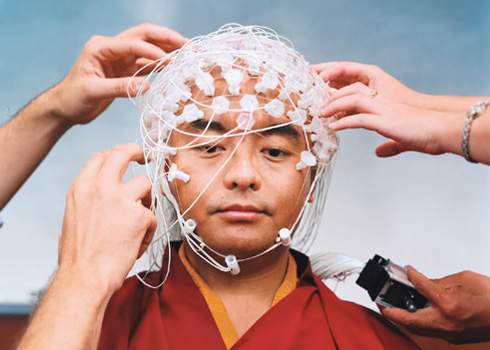Michael J. Baime, MD is a Clinical Associate Professor of Medicine at the University of Pennsylvania (UPenn) School of Medicine and the founder and Director of the UPenn Program for Stress Management. The program was founded in 1992 and has trained more than 5,000 people in mindfulness-based stress management. Dr. Baime is currently involved in research on the relationship between meditation training and learning; the cognitive neuroscience of meditation; and the clinical applications of mindfulness training, including its efficacy as a treatment for ADHD in adults and for preventing weight regain after successful dieting. In addition to his research and work in the field of mindfulness, he is published widely in medical journals on subjects as varied as screening for cancer in the patient with rheumatic disease, aging of the gastrointestinal system, and glycine irrigant absorption syndrome following cystoscopy.
When asked to describe his background in practice and study, Dr Baime replied that he started officially to study at age 14, but he had begun meditating on his own even before that, “as a little kid.” In 1978, he connected to the Shambhala lineage, and became a student of Chogyam Trungpa Rinpoche. He has since studied with Khenpo Tsultrim Gyatso, and is currently a devoted student of Sakyong Mipham Rinpoche.
In the 1980’s, enthusiastic about his spiritual path and ready to consider becoming a monk, Baime made the decision to stay in medical school because Chogyam Trungpa Rinpoche told him to. Knowing that meditation was not just for the cushion, Rinpoche encouraged his students to become engaged with the world. In 1986, with his formal medical training complete, Dr. Baime started to practice medicine. He could see right away that his teacher had been right. “What people needed was not another medication, but really a glimpse of their own sanity.” What he saw, first as a kid, and then through practice and study under the guidance of Chogyam Trungpa, he was now able to offer to his patients.
Dr. Baime began teaching meditation in the medical setting before he had heard of Jon Kabat-Zinn, Ph.D., founder and director of the Stress Reduction Clinic at the University of Massachusetts Medical Center. In 1990, Baime had the opportunity to meet Kabat-Zinn, who he claims to be “a genius in this area,” and began to adopt many of the principles of Mindfulness Based Stress Reduction in his own work at the UPenn Program for Stress Management.
Currently, Dr. Baime is co-teaching a course at UPenn with Amishi Jha on the Cognitive Neuroscience of Meditation. As homework, each student is required to practice mindfulness meditation for at least 10 minutes each day. In class, they look at research studies on meditation and brain function. The studies report that cognitive improvements can be measured, and even regional brain function can be determined, i.e. which areas of the brain are activated through meditation practice. This innovative course, combining the study of neuroscience research and the practice of meditation, produces some unexpected results. Students learn through practice that “meditation is about training attention.” They not only notice things better, but also report clarified sense perceptions and an enhanced capacity to experience clarity. They begin to look more deeply into their own being.
“What has continued to surprise me,” says Dr. Baime, “is the amount of change that can happen in a very short time.” Both in the university course described above, and a similar public course, participants find that their mood improves dramatically. Laboratory measures of cognitive focus will show how quickly one can start and sustain focus of the mind, but what really matters is that people feel more alive, wholesome, balanced and integrated. During the 8-week public course, participants are asked to practice mindfulness meditation for 45 minutes per day. Although they come for stress management, what they discover is “a deeper anchor in the turbulence of their lives.”
“The practice of mindfulness meditation is about more than just following the breath,” reports Dr. Baime. One can quickly learn, through the structure of having a daily practice, that it’s more about understanding how our thoughts and emotions are the roots of our own reactivity.
As one who has successfully integrated their work and spiritual paths, Dr. Baime shares the following insights for someone who wishes to move in that direction: “You have to follow your heart,” he says, “and be realistic about the sacrifices.” It’s really hard. Go slow, be patient, and take one step at a time.






